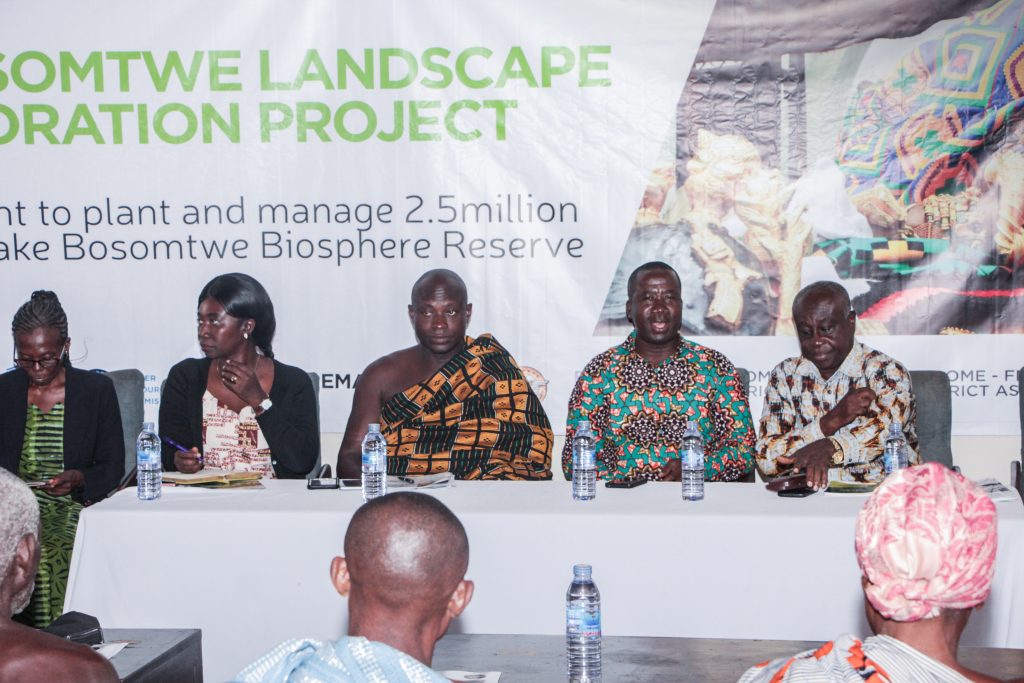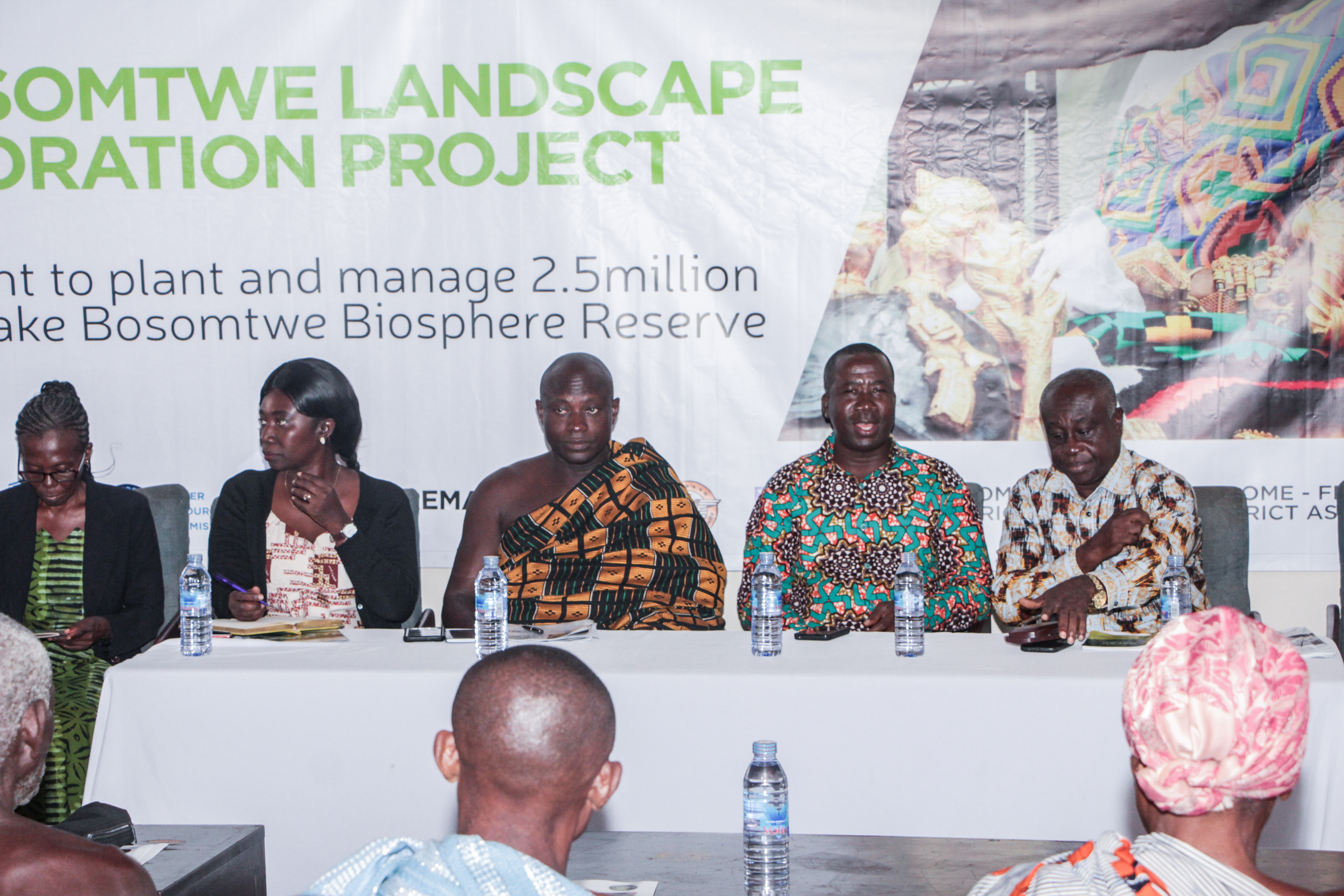A stakeholder meeting has been held by all the implementing partners of the Asantehene’s Landscape Restoration project at the Bosomtwe Biosphere Reserve.

Nana Adu Mensah Asare – Amakomhene seated in the middle. On his left is the Regional Manager of Water Resources Commission – Mrs Dufie Bremang and extreme left, Deputy Programme Officer – Miss Eunice Osei
SMART FARMING CAN COMBAT CLIMATE CHANGE , REDUCE FARMERS OPERATING COST AND BOOST CROP YIELDS- Nana Adu Mensah Asare(Amakomhene)
A days stakeholder meeting has been held by the implementing partners of the Asantehene’s Landscape Restoration programme .
The Bosomtwe Land Restoration project by the Asantehene in partnership with the Oheneba Poku Foundation seeks to restore the Bosomtwe Biosphere reserve with 2,500,000 trees in 5 years. This exercise will restore 4,500 hectare and has a potential Carbon Sequestration of 290,500 tons ..
The project seeks to plant the trees at the buffer area which is 90 meters from the lake’s shoreline, individual farms and fallow lands within the biosphere reserve.
The chairman of the Implementation committee , Nana Adu Mensah Asare(Amakomhene) encouraged farmers to adopt conservative agriculture methods for the sustainability of the project. He said,” On farms where climate-smart agriculture practices are used, the soil is treated almost as if it were a crop. Not only does fertile soil impart better flavor and higher nutritional value to food, soil is one of the biggest carbon sinks on the planet. Healthy soil holds more moisture, keeping plant roots hydrated in dry periods”.
Already the lake is reducing in size with dwindling fish stock and the drying up streams feeder streams.
The regional director of Water Resources Commission Mrs. Abena Dufie Wiredu Bremang: said there is a need for the project to first target the buffer zone( which is up to 90 meters of the shore) . She said, Climate-smart agriculture promotes a number of water conservation practices, such as planting a buffer of trees and bushes along streams and rivers to prevent erosion and contamination from crop runoff.
Mr. Fred Kyei Sarpong, the executive director of Oheneba Poku Foundation said; farmers should not be afraid to get their hand dirty’, Sometimes to get the job done, you have to get your hands dirty. Pulling weeds by hand instead of using chemical weed killers is more labour-intensive in the first year or two—but it is better for soil health and can lower a farmer’s operating cost has lowered emissions and boosted crop yields.
He said farmers who practiced selective manual weeding, where workers uproot “bad” weeds (which are later composted) while allowing “good” weeds to grow and restore nitrogen to the soil have also boosted crop yields without clearing more forest, because their soil is now more fertile.
In Attendance: Partners in the Projects made up of Blaze Metal Resources, Environmental Protection Agency, Forestry Commission, The DCE’s of Bosomtwe and Bosomtwe District Assemblies and The Lake Bosomtwe Community Resources Management Areas (CREMA)


